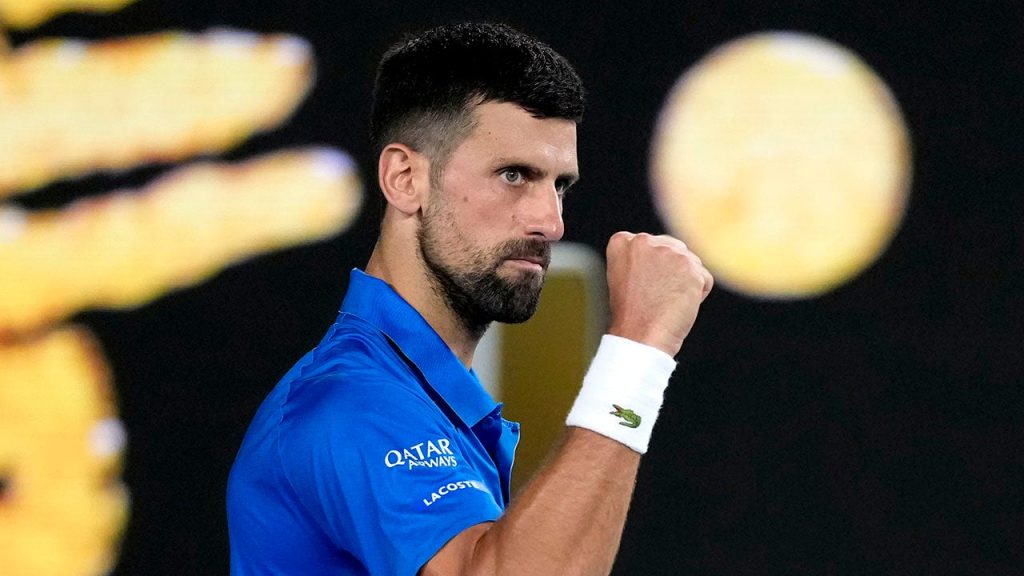Novak Djokovic’s Triumph and Subsequent Boycott of Australian Media: A Deep Dive into the Controversy
Novak Djokovic, the Serbian tennis titan, continued his dominant run at the Australian Open 2024, cruising into the quarterfinals with a convincing straight-set victory over Jiří Lehecka. However, the on-court triumph was quickly overshadowed by a brewing controversy involving Djokovic and the Australian media, specifically Channel 9, the official broadcaster of the tournament. The incident stemmed from comments made by veteran sports journalist Tony Jones, who labeled Djokovic "overrated" and a "has-been." These remarks, perceived as deeply offensive and insulting by Djokovic and his fans, sparked a strong reaction from the Serbian star, who subsequently refused to engage in any post-match interviews with Channel 9.
The boycott was a significant departure from the usual post-match protocol, where the victor typically grants an on-court interview to the host broadcaster. Djokovic, visibly upset by Jones’ disparaging comments, bypassed this tradition, leaving former tennis player and interviewer Jim Courier waiting on the court. Djokovic’s actions signaled a firm stance against what he deemed disrespectful and unprofessional behavior from a member of the media. He later explained his decision in a press conference, emphasizing that he sought an apology from both Jones and Channel 9, highlighting the journalist’s mockery of Serbian fans as a particularly egregious offense.
Djokovic’s refusal to engage with Channel 9 wasn’t a spur-of-the-moment decision. He addressed the matter with Craig Tiley, CEO of Tennis Australia, expressing his discontent and making his position clear. Djokovic conveyed his willingness to accept any potential fines for breaching the customary post-match interview obligation, underscoring his commitment to upholding his principles and demanding respect. This conversation with Tiley signaled Djokovic’s seriousness about the issue and his resolve to stand by his decision.
The controversy garnered significant attention, even attracting commentary from billionaire entrepreneur Elon Musk, owner of the social media platform X (formerly Twitter). Musk, a prominent voice in the ongoing debate about the role and influence of traditional media, expressed his support for Djokovic’s stance. He argued that direct communication with the public, bypassing the "negativity filter of legacy media," is a more effective and authentic approach. Djokovic responded affirmatively to Musk’s comment, further solidifying his position against what he perceived as unfair and biased media coverage. This exchange highlighted a broader conversation about the evolving relationship between public figures, traditional media, and social media platforms.
The Djokovic-Channel 9 incident raises several key questions about the role of sports journalism, the boundaries of acceptable commentary, and the power dynamics between athletes and the media. Djokovic’s boycott sparked a debate over the responsibility of journalists to provide balanced and respectful coverage, regardless of personal opinions about athletes. It also brought into focus the increasing use of social media by athletes to control their narrative and bypass traditional media outlets they perceive as biased.
The controversy surrounding Djokovic’s refusal to speak to Channel 9 extends beyond a simple disagreement between an athlete and a journalist. It touches upon the broader issue of media ethics, the athlete’s right to respectful treatment, and the shifting landscape of media consumption in the digital age. Djokovic’s actions, while controversial, ignited a conversation about the responsibilities and accountability of both athletes and the media in the modern sports world. The incident serves as a case study for the ongoing evolution of athlete-media relations in an era dominated by social media and instant communication.

